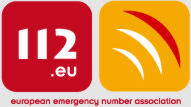An overview of EENA’s proposals to the European Commission since 2001
When reading this blog or EENA’s site, one could get the impression that EENA is only lodging complaints and protests. « Do you have any positive proposals? » « Why don’t you propose something practical? » are the questions well intentioned people usually ask. The answer is that EENA has been submitting concrete proposals since 2002, but the European Commission and the Member States have refused to consider them.
In 2001, in the context of a call for proposals for actions concerning the information to the Public (including the 112), EENA submitted a relevant proposal, the e-mergency project. It aimed at the creation of a central multilingual database of re-usable information and communication elements for the written, audio and video promotion of the 112 (videos, audio files, written messages, etc. to be used in information campaigns practically without cost for the users). Although it obtained high marks and was proposed for financing, it was rejected by the representatives of the Member States (who used to distribute the relevant funds amongst themselves) because, as one of them stated «since civil protection formed part of states’ principal responsibilities, the opinion of a state representative had to be sought to ensure the legality of each action presented in the framework of a call for proposals. Moreover, in most cases the projects were the responsibility of local authorities and did not have any intergovernmental impact. [The Member State concerned] gives indeed priority to intergovernmental projects». Of course the Member State in question did not launch any large scale information campaign on the 112 and the latest Eurobarometer showed that only one in every four of its citizens was aware of the 112.
In December 2003 EENA organized the 1st European 112 Conference and Exhibition in Brussels. Commission officials were invited and took the floor and EENA transmitted the conclusions to Commissioner WALLSTRÖM with some concrete proposals. Again, the Commission politely indicated that it would only try to raise awareness on the issue, the real work had to be done by EENA. They even wished us every success! So, in the beginning of 2004 and on the basis of concrete examples, EENA decided to play by the established rules. As the Commission pretended in its annual reports that there were no problems, we lodged a first series of complaints with the European Commission against several Member States who were implementing the 112 either partially or not at all. And when the Commission failed to respond in a timely manner we also lodged complaints against the Commission with the European Ombudsman. We should have known better! Our complaints against the Member States were dismissed in 2006 «as they did not provide a sufficient basis to proceed with an infringement proceeding» against the Member States concerned. Furthermore, although the Ombudsman concluded that «the Commission's failure to inform EENA about the complaints against Austria, France, Germany, Greece, Ireland, Italy, Spain and the United Kingdom thus constitutes an instance of maladministration» this had no practical effect whatsoever. But he advised us to introduce a petition with the European Parliament!
In parallel we also continued proposing concrete actions. In the autumn of 2004 in collaboration with Ms. Fréderique RIES, Member of the European Parliament, we disseminated to all the Members of the European Parliament and to the new Commission a leaflet (Citizens’ Security: as simple as 1+1=2) describing the existing situation and proposing a «Roadmap for a better 112 service chain». In December 2004 we organized the 2nd European 112 Conference and Exhibition and on the basis of a request by the Cabinet of Commissioner DIMAS we submitted a proposal for an action program in the field of the 112 as far as citizens were concerned. Again the Commission did not reply, although EENA had ensured through the European Parliament that financing of the proposed actions was possible. So, we decided to follow the advice of the European Ombudsman and in July 2005 we introduced a petition with the European Parliament. More than a year later the petition was discussed and the whole exercise resulted in the support given by several MEPs during a press conference in February 2007.
Of course we continued submitting concrete proposals. We did so in the context of the consultation regarding community action on health services as well as in the context of the consultation on the telecommunications regulatory framework. What EENA has been proposing over the years boils down to the following:
- Evaluation of the real implementation of the full 112 service chain in the EU, on the basis of the methodology implemented in Portugal in 2003.
- Establishment of common quality standards concerning the 112 service chain (based on results obtained and not on means made available). These standards should cover issues like the percentage of population aware of the 112, the maximal response and intervention times, information concerning the availability of network coverage, possibilities of access by disabled users, the multilingual answering of calls, minimal requirements for the training of operators in the proper handling of calls, the transfer of caller location information, the practical implementation of the European health insurance card during emergencies and finally, periodic evaluation exercises of the whole 112 service chain.
- Launching an EU-wide programme to inform citizens about the existence and use of the 112. Although this is a legal obligation of Member States the EU could support and supplement their efforts in this area through the establishment of a 112 day, (11/2 or 1/12), the establishment of a central multilingual database of re-usable information and communication elements for the written, audio and video promotion of the 112 and the creation of a multilingual internet portal using the 112.eu address.
Is this too much to ask, 16 years after the establishment of the 112, from a European Union who declares its will to get closer with its citizens?
